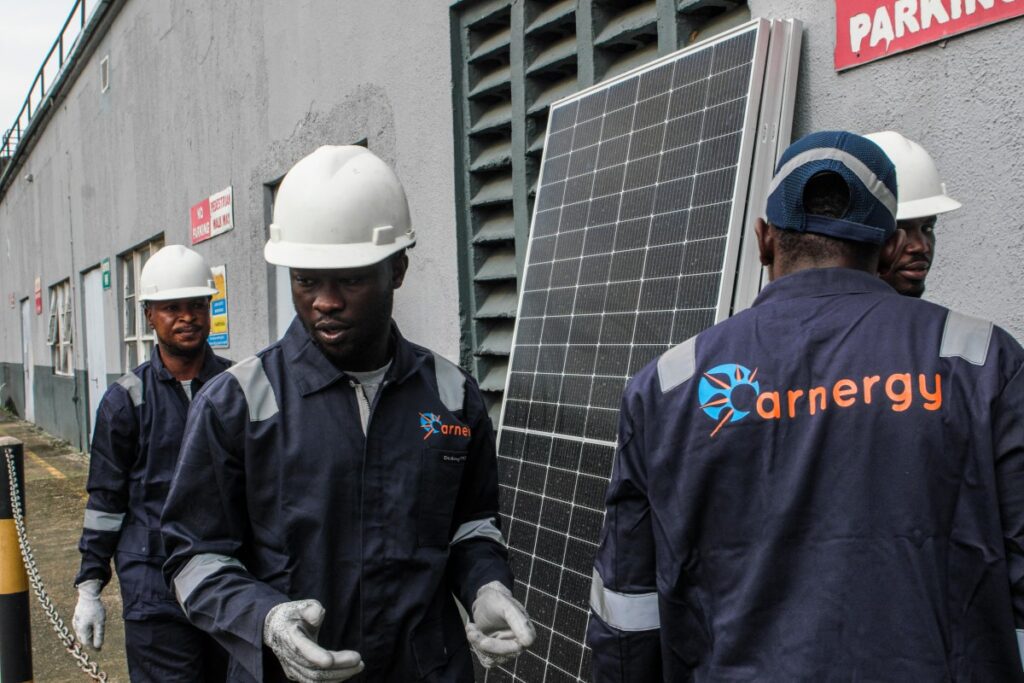Arnergy Leads Solar Energy Surge in Nigeria
The increasing demand for solar energy in Nigeria has accelerated significantly over the last decade, influenced by declining reliability of the national power grid and escalating fuel prices. Emerging as a market leader in this green sector, Arnergy, a cleantech startup, recently secured $15 million in a Series B funding extension, augmenting its earlier $3 million round, thereby raising its total funding in this series to $18 million.
Shifts in Energy Policy Fuel Demand
A key factor driving this surge in solar adoption is the removal of Nigeria’s long-standing fuel subsidy in May 2023. This significant policy change, which ended the government’s practice of subsidizing the difference between global and local fuel prices, has seen petrol prices increase by nearly 500%. As a result, traditional power sources, particularly diesel and petrol generators, have become dramatically more expensive to operate.
Femi Adeyemo, founder and CEO of Arnergy, noted, “When we started the business, we used to position solar as a way to get uninterrupted power, not necessarily to save money. It wasn’t part of a commercial conversation. Now it is, because we can clearly show customers how our systems save them monthly whether using petrol, diesel, or even the grid.”
Strategic Shifts in Business Model
Founded in 2013, Arnergy initially aimed to provide solar solutions mainly for homes and businesses across various sectors, including hospitality, education, finance, agriculture, and healthcare. What began as a focus on energy resilience has shifted towards a more commercially viable cost-saving strategy as energy prices soar.
Growth of Lease-to-Own Products
A notable success for Arnergy has been its lease-to-own product, Z Lite, which gained prominence after its earlier funding round. This model has seen a significant shift in consumer preferences—from outright purchases, which constituted 60% to 70% of revenue in 2023, to lease options, which accounted for only 25% of sales in the previous year but have gained increasing popularity.
- Leases provide a fixed monthly payment for 5 to 10 years, leading to ownership of the system.
- High electricity tariffs and rising diesel costs have made lease options more attractive.
- Adeyemo emphasized, “Imagine paying ₦200,000 (~$125) every month for power. With our product, that drops to ₦96,000 (~$60). Over five years, it’s a no-brainer what you’ll save.”
Arnergy saw its lease customer base triple between 2023 and 2024 and projects a 4 to 5 times growth this year. Revenue in naira has been increasing, although dollar revenues remain flat due to currency fluctuations. The company is exploring B2B2C partnerships to bolster its dollar revenue.
Expansion Plans in a Changing Policy Environment
To date, Arnergy has installed over 1,800 solar systems across 35 states in Nigeria, totaling 9MWp of solar capacity paired with 23MWh of battery storage. With the latest funding round led by Nigerian private equity firm CardinalStone Capital Advisers (CCA), Arnergy aims to increase its installations to over 12,000 systems by 2029.
Shifting from direct sales to a partnership model, Arnergy plans to collaborate with business clients and retail outlets outside Lagos, enabling access to a broader customer base in Nigeria’s energy-deficient regions. Moreover, the company is negotiating local debt from banks and development finance institutions to fund innovative projects and services.
Challenges Ahead: Proposed Import Ban
However, the growth trajectory of Arnergy faces potential challenges from recent government proposals to ban solar panel imports in favor of boosting local manufacturing. This has sparked concerns among stakeholders who argue that the domestic manufacturing capacity in Nigeria is insufficient.
Adeyemo recognizes the importance of local manufacturing but cautions against abrupt bans that could hinder the burgeoning solar industry. “We’re advocates for local manufacturing. But let’s build capacity before shutting the door on imports. Otherwise, we risk doing more harm than good, both to the industry and to the millions of Nigerians who now rely on solar as their primary energy source,” he explained.


